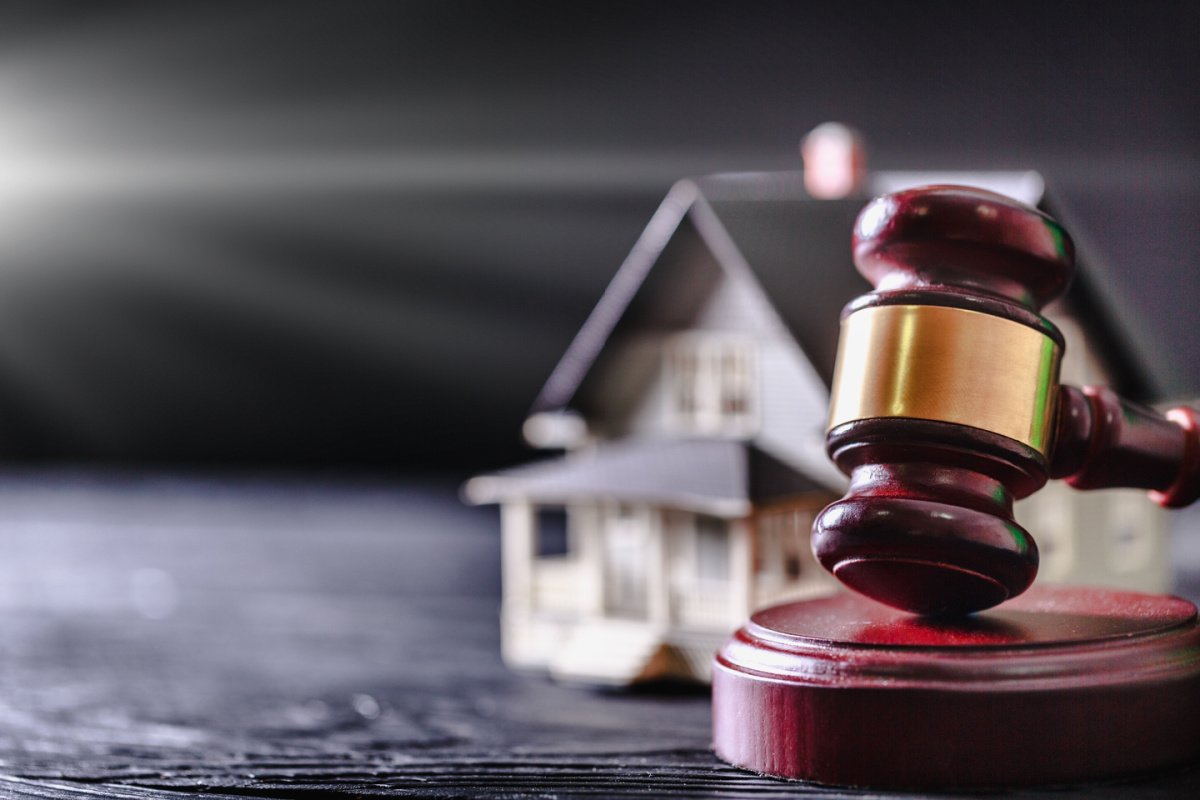




Rent prices are climbing across the United States in every type of rental housing. Wisconsin is experiencing an even more dramatic rise, with increases as much as 25% since 2021. In contrast, annual rent increases in the entire country have stayed under 10%, which is still twice the rate before the COVID-19 era. Mortgage rates have also hit record highs. These economic trends expose both landlords and tenants alike.
When a landlord faces bankruptcy, several legal protections are available to ensure rights and properties are safeguarded. First, filing for bankruptcy can provide an automatic stay, which temporarily halts actions from creditors, including foreclosures. Depending on whether Chapter 7 or Chapter 13 is chosen, landlords may also have options to restructure debts or liquidate assets in an orderly manner. In some situations, landlords can retain control of rental properties, allowing for continued revenue generation from tenants. Moreover, bankruptcy laws are designed to give landlords an opportunity to start fresh by resolving unpaid debts under court supervision. Understanding these protections can assist landlords in making informed decisions and give them a chance to stabilize their financial situation during a challenging period.
When landlords face bankruptcy, certain legal protections exist to aid them through an often complex process. Among these protections, the automatic stay is significant, as it stops most collection efforts, lawsuits, and property foreclosure actions. Chapter 7 bankruptcy might allow landlords to clear unsecured debts, while Chapter 13 can enable them to set up a payment plan. Both chapters aim to provide breathing space while figuring out next steps. Laws also protect landlords from unfair practices by creditors, offering a chance to reorganize or liquidate in a controlled environment.
In a landlord’s bankruptcy situation, tenants still have rights that protect their interests. While bankruptcy might create uncertainties about housing, laws ensure tenants aren’t left without options. One essential right is the protection of a lease agreement, as most leases remain valid even if a landlord declares bankruptcy. Additionally, tenants have the right to continue living in the rented property while complying with the lease terms. Bankruptcy laws also protect security deposits, and landlords are often required to handle these funds according to specific regulations. Tenants can also expect the property to be maintained properly, despite the landlord’s financial situation.
Rental agreements play a vital role in bankruptcy scenarios, laying out the terms and conditions between landlords and tenants. Even when a landlord files for bankruptcy, existing rental agreements usually continue to be valid. Tenants are typically expected to keep following the terms, such as paying rent on time. Meanwhile, landlords must continue to provide the agreed-upon services like maintenance and utilities. Bankruptcy doesn’t necessarily mean a termination of the lease. However, in some situations, a bankruptcy trustee may decide to break the lease if it benefits the bankruptcy estate, subject to court approval. Overall, understanding rental agreements in these situations helps both landlords and tenants maintain a clear perspective and adhere to their respective responsibilities, ensuring a smoother process through an often-complicated financial event.
Bankruptcy can bring many questions, especially regarding security deposits for rental properties. Generally, a tenant’s security deposit must be handled with care, even in bankruptcy. Landlords are often required to keep these funds separate from other financial assets, which can protect them from being affected by the bankruptcy process. In many instances, security deposits remain untouched and continue to be governed by the terms of the rental agreement. However, specific laws may vary by jurisdiction, and different situations might lead to varied outcomes. Understanding how bankruptcy impacts security deposits is important for both landlords and tenants. It provides clarity and assurance in knowing what to expect from an otherwise uncertain and challenging financial situation.
The intersection of evictions and bankruptcy brings to light several key legal aspects affecting both landlords and tenants. When a landlord files for bankruptcy, eviction processes can become more complex. An automatic stay may temporarily halt eviction proceedings, depending on specific circumstances. For tenants, complying with the lease terms remains vital, as bankruptcy does not generally exempt them from fulfilling their obligations. On the landlord’s side, adhering to federal and state eviction laws continues to be mandatory. In some cases, a landlord’s bankruptcy might even affect the timeline of an eviction process. Understanding these legal insights helps both landlords and tenants approach evictions and bankruptcy with greater awareness and preparedness, reducing potential conflicts and confusion in an already delicate legal landscape.
Bankruptcy does not absolve landlords from their duty to maintain rental properties. Even in financial distress, landlords must continue to provide essential services, such as repairs and upkeep, according to the lease agreement. On the tenant’s side, expectations for a safe and habitable living space remain valid, and landlords must meet those standards. Whether dealing with routine maintenance or urgent repairs, landlords’ obligations do not change due to bankruptcy. Tenants still have the right to request necessary repairs and expect timely responses. Understanding these obligations and expectations ensures a more harmonious relationship between landlords and tenants, even during bankruptcy proceedings. It also promotes a sense of stability and trust, emphasizing the importance of maintaining property standards irrespective of financial circumstances.
Bankruptcy comes in various forms, with Chapter 7 and Chapter 13 being two common types to affect landlords and tenants. Chapter 7, known as liquidation bankruptcy, involves selling off assets to pay debts, and a landlord may lose ownership of rental properties. This could affect tenants, leading to potential changes in lease agreements. On the other hand, Chapter 13, or reorganization bankruptcy, allows landlords to develop a plan to pay off debts over time, often enabling them to retain ownership of properties. This option might provide more stability for tenants. Differences between these two chapters can significantly affect how landlords manage properties and how tenants experience their rental situation. Understanding these distinctions offers clarity to both parties, guiding them through what can be a complex and uncertain financial landscape.

Facing bankruptcy can be overwhelming for both landlords and tenants. Preparation and understanding of legal aspects can ease some of the strain. For landlords, knowing the differences between Chapter 7 and Chapter 13 bankruptcy, as well as their rights and obligations, can provide some direction. Tenants, on the other hand, need to be aware of their rights, including lease protections and property maintenance expectations. Both parties must recognize bankruptcy does not typically nullify existing rental agreements, and obligations to pay rent or maintain properties continue. Having a solid grasp of these elements helps in making informed decisions and approaching bankruptcy with more confidence.
The alternative to bankruptcy through debt management plans can sometimes serve as a suitable option for some individuals. Furthermore, being knowledgeable about the local economic environment, such as the nuances of living, working, and thriving in Milwaukee, Wisconsin, can also aid in making more informed financial decisions. Additionally, it’s crucial to understand the role key figures play in the process. Familiarizing oneself with the role of a bankruptcy trustee ensures that you are not taken by surprise during the proceedings. With a plethora of resources available on sites like My Debt Advisors, it’s easier than ever to navigate the bankruptcy landscape.
If you are filing for bankruptcy, contact us or call us at 866-696-6432 today for a free consultation.

Learn about bankruptcy protections, types of bankruptcy, how to get started, what to expect, and who to trust. Filing bankruptcy is the ONLY way to completely eliminate debt. If bankruptcy is right for you, it offers powerful protections that cannot be achieved through alternative solutions such as hardship relief, loans, or debt settlement.